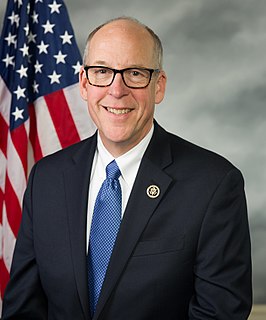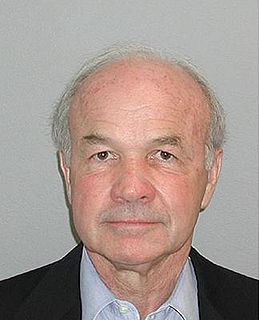A Quote by Barack Obama
Under my plan of a cap-and-trade system, electricity rates would necessarily skyrocket.
Quote Topics
Related Quotes
Under my plan of a cap and trade system, electricity rates would necessarily skyrocket… Because I’m capping greenhouse gasses, coal power plants, natural gas…you name it…whatever the plants were, whatever the industry was, they would have to retro-fit their operations. That will cost money…they will pass that money on to the consumers.
Eventually we'll use a CO2 tax offset by a reduction in taxes elsewhere alongside a cap-and-trade plan, but the degree of difficulty associated with a CO2 tax far exceeds that with a cap-and-trade plan. We're seeing it's hard to get a cap-and-trade plan and it's much easier to use as a basis for a global agreement than a CO2 tax.
To some, a cap-and-trade system might sound like a neat approach where the market sorts everything out. But in fact, in some ways it is worse than a tax. With a tax, the costs are obvious. With a cap-and-trade system, the costs are hidden and shifted around. For that reason, many politicians tend to like it. But that is dangerous.
I'm not shy about stating my opinion on political issues, so I can state my opinion, which is, on this one, Premier Notley's right. Because cap and trade systems have not been shown to work. And if you want to price carbon, then I would listen to the CEO of Suncor, who suggests a clean, transparent carbon tax makes a bunch more sense than a cap and trade system that just creates jobs for traders. I - I kind of agree with that.
[Barack] Obama, for example, he has not given up on cap-and-trade. Now, he has not been able to pass cap-and-trade, but cap-and-trade is all about redistribution of wealth in a global basis - taking money out of this country and giving it to third-world countries on the other end of the ocean. And that is redistribution of wealth in a global basis. It's fundamental Marxism.
A cap and trade bill will likely increase the costs of electricity. . . . These costs will be passed on to the consumers. But the issue is, how does it actually...how do we interact in terms with the rest of the world? If other countries don't impose a cost on carbon, then we would be at a disadvantage. . . . We should look at considering duties that would offset that cost.
I was in a form of a prison: not necessarily with bars, but I was locked to that machine three days a week, and I couldn't plan work, I couldn't plan vacations, I couldn't plan dinner, I couldn't plan homework, I couldn't plan nothing because at the end of the day, Monday, Wednesday and Friday, I had to be at dialysis.
Once you have an equalization instrument in place, as you have in Canada, there arise tremendous bureaucratic values - bureaucratic rent so to speak - in maintaining the system that you have. To shift to a system that paid the transfers directly to individuals, by having differential rates of federal income tax levied to adjust to provincial fiscal capacities, which would be my preference, you would have huge bureaucratic opposition. People would try to protect the rents they have in the current system of institutions.
































